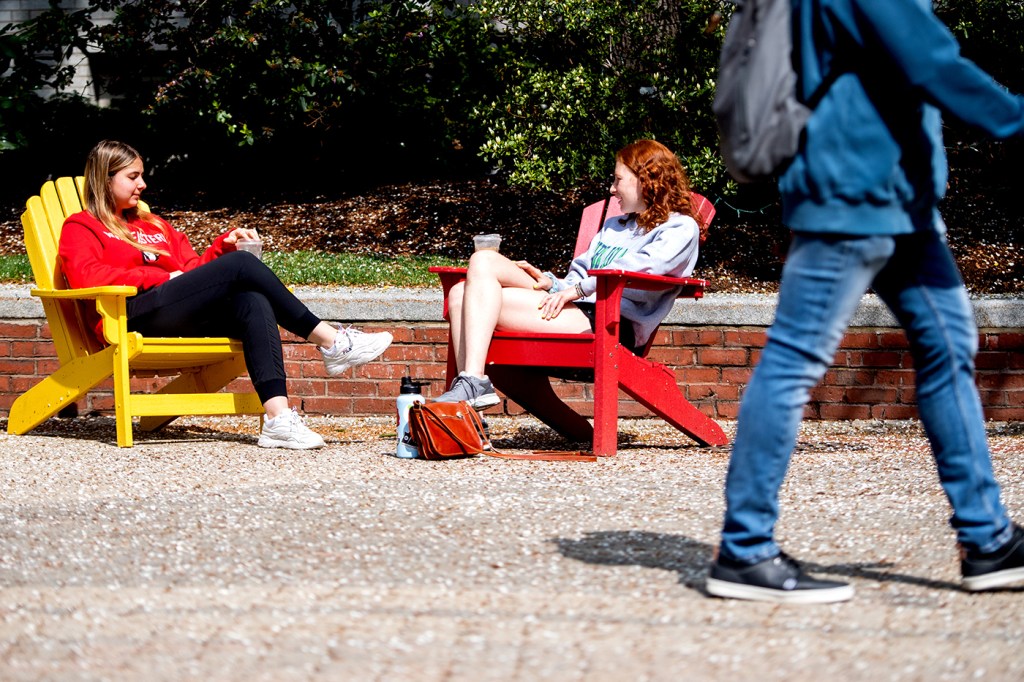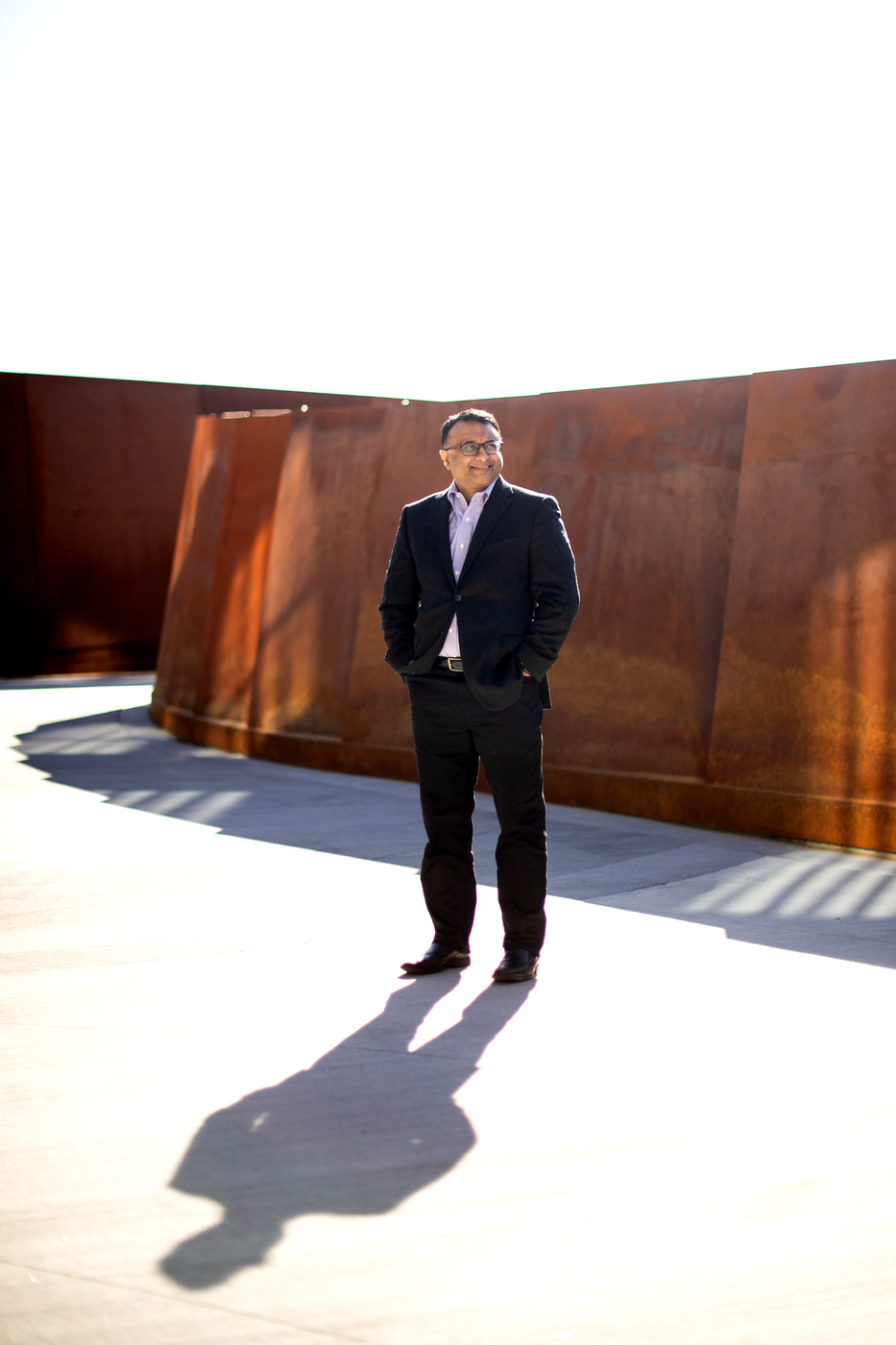The CDC says vaccinated people can stop wearing masks outside–but will they?

The Centers for Disease Control and Prevention recently relaxed guidelines for outdoor mask-wearing for people fully vaccinated against SARS-CoV-2, the coronavirus that causes COVID-19, and many state and city officials across the United States have followed suit. A fully vaccinated person, the federal agency says, no longer needs to wear a mask outdoors in certain situations—but whether people will actually forgo their face coverings remains to be seen.
“It’s exciting news, but I do feel like I’ll keep wearing my mask for a while,” said Iris Cotrupi, a first-year student at Northeastern. The university also recently updated its COVID-19 guidelines: Students, faculty, and staff (vaccinated or not) are no longer required to wear masks outdoors as long as they maintain a healthy distance.

Neil Maniar, director of the Master of Public Health program and a professor of the practice in the Bouvé College of Health Sciences. Photo by Matthew Modoono/Northeastern University
Dave Bhavin, a graduate student on Northeastern’s Boston campus, said he, too, would continue wearing his mask. “I’ve just gotten used to wearing it—I think I’ll be wearing a mask until everything returns to normal.”
But for some, such as Parker Brandt, a second-year computer science student, the relaxed guidelines felt freeing, if still a bit awkward.
“I’m fully vaccinated, and I still wear my mask so that other people don’t feel nervous around me,” Brandt said, “but as things in Boston and in Massachusetts as a whole start to improve, I’m looking forward to riding my bike without a mask and just smelling the fresh air.”
The new federal guidelines, which went into effect at the end of April, strike a balance between “allowing us all to resume certain activities without having to wear a mask, and protecting individuals who haven’t gotten vaccinated by keeping masking in other situations,” said Neil Maniar, professor of the practice and director of the Master of Public Health program at Northeastern.
The guidance from the CDC is careful: It says that people who are fully vaccinated against the coronavirus no longer need to wear a mask outdoors while walking, running, hiking or biking alone, or when in small gatherings, including with members of their own households. Masks are still necessary in crowded outdoor venues like sports stadiums, the CDC said.
“It reflects and underscores the importance of getting the vaccination and the role they play in allowing us all to achieve a new normal, a better normal,” Maniar said.
Bhavin said he still gives people a wide berth when he sees they’re not wearing masks, because there’s no way to tell who’s been vaccinated and who hasn’t, something Maniar acknowledged as well.
“We can’t assume that everyone who’s not wearing a mask is vaccinated,” he said, “but we all have an obligation to take care of ourselves and take care of each other. As someone in public health, the idea is that we want everyone to get a vaccination so that we can be more confident, when we see someone outside without a mask, that they’re not putting themselves or anyone else in danger.”
And while the new guidelines might amount to a modest step forward, they also “offer a window into what is possible as more and more of us get vaccinated,” Maniar said.
“As long as we keep trending in this direction, I think we’ll continue to see these guidelines that will reduce mask usage further and further,” he said. “That’s a really promising thing.”
For media inquiries, please contact Jessica Hair at j.hair@northeastern.edu or 617-373-5718.





